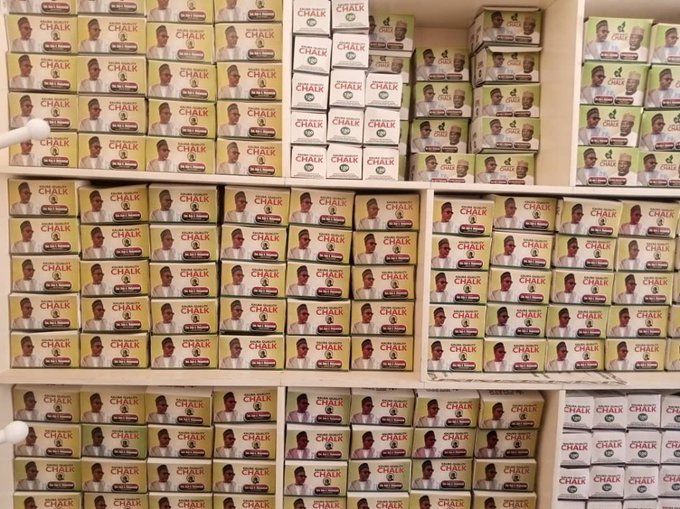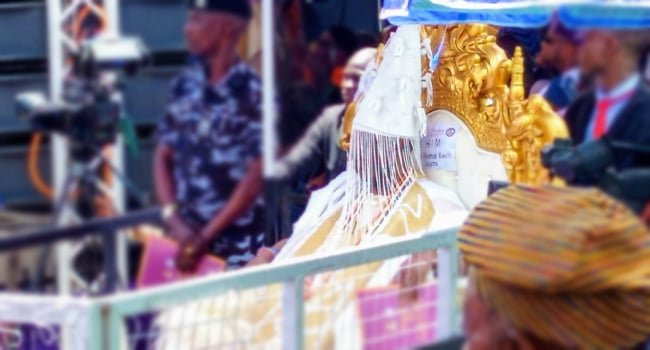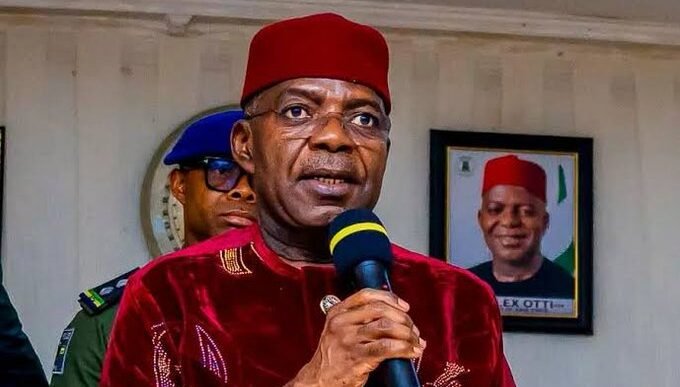The Bauchi State Government has taken a bold step in strengthening its education sector by commencing the local production of exercise books and chalks for onward distribution to schools across the state. The initiative, which was announced on Thursday, marks a significant milestone in the state’s ongoing efforts to improve academic excellence and provide basic learning materials to pupils and students at no cost.
According to government officials, the project is designed to reduce the perennial shortage of learning materials in public schools, ease the financial burden on parents, and ensure that no child is left behind in the pursuit of education. The initiative aligns with Bauchi State’s broader educational reforms aimed at improving quality, accessibility, and affordability across all levels of learning.
Tackling Shortages in Basic Learning Materials
For years, schools in Bauchi State, like many others across Nigeria, have grappled with the challenge of insufficient basic supplies such as exercise books and chalk. Pupils often attend classes without writing materials, while teachers face difficulties due to shortages of chalk, which remains a primary teaching aid in many rural schools where digital alternatives are still unavailable.
By initiating local production, the Bauchi State Government is addressing two major problems simultaneously: the over-reliance on costly supplies sourced from outside the state and the recurrent delays in distributing materials to schools. The locally produced exercise books and chalks will now be distributed more efficiently, ensuring that schools, even in the remotest communities, receive timely support.
Speaking during the launch of the project, government representatives emphasized that the initiative is part of a broader vision to place education at the heart of Bauchi’s development agenda.
Boosting Academic Performance Through Adequate Supplies
Experts in the education sector have consistently stressed the importance of providing students with adequate learning resources. A lack of basic materials such as exercise books directly affects classroom participation, note-taking, and effective revision. Similarly, insufficient chalk in schools hampers teaching delivery, limiting the ability of educators to engage students effectively.
By ensuring that students have access to free exercise books and teachers are equipped with chalk, Bauchi State is removing barriers that often hinder learning outcomes. Analysts believe this move will help boost literacy levels, improve examination performance, and inspire greater interest in education among young learners.
Dr. Usman Ali, an educationist based in Bauchi, hailed the initiative as “a game changer” that could significantly raise the standard of education in the state. According to him, “When students do not have the tools to learn and teachers lack the resources to teach, the quality of education is compromised. By addressing these basic needs, the government is laying the foundation for academic excellence.”
Job Creation and Local Economic Benefits
Beyond improving education, the local production of exercise books and chalk is expected to create employment opportunities for residents of Bauchi State. The factories established for this purpose will not only engage skilled and unskilled workers but also stimulate local supply chains by sourcing raw materials where possible.
Government officials revealed that the production centers will employ youths in areas such as printing, packaging, logistics, and distribution. This approach is consistent with Bauchi’s strategy of using education sector investments to also drive economic empowerment.
Furthermore, by producing materials locally, the state government is cutting costs that would otherwise be spent on importing supplies or purchasing them from other regions. This cost-saving measure will enable the government to channel more resources into other pressing needs in the education sector, such as teacher training, school renovations, and digital learning infrastructure.
A Step Toward Sustainable Education
One of the key highlights of the new initiative is its sustainability focus. In the past, many state governments relied on ad-hoc donations and one-off interventions to provide school materials, leading to inconsistencies in supply. Bauchi’s approach, however, seeks to establish a steady pipeline of resources that will keep schools adequately stocked throughout the academic calendar.
The government has also hinted at expanding the production line to include other materials such as pens, pencils, and even textbooks in the future. By investing in local production capacity, Bauchi is positioning itself to become self-reliant in the supply of essential school materials, thereby reducing the risk of disruptions caused by economic or logistical challenges.
Parents and Teachers Welcome the Initiative
The news of the government’s decision has been warmly received by parents, teachers, and community leaders across the state. For many families struggling with the rising cost of living, the free provision of exercise books will ease financial pressure and encourage school attendance.
A parent in Katagum Local Government Area expressed relief, noting that “with the current economic hardship, buying exercise books for three children every term has not been easy. This gesture from the government will go a long way in helping families like mine.”
Teachers have also applauded the move, particularly the provision of chalks, which remain indispensable in classrooms across the state. Many rural schools still lack access to digital teaching boards, making chalk the primary tool for writing and teaching. A primary school teacher in Dass described the initiative as “a lifeline,” stressing that “teaching without chalk has been a frustrating experience for many of us. This will make our work much easier.”
Education as a Priority in Bauchi State
This initiative adds to a growing list of educational reforms implemented by the Bauchi State Government in recent years. The administration has consistently emphasized that education is the bedrock of development and must be prioritized in order to prepare the state’s youth for future opportunities.
From recruiting new teachers to renovating dilapidated classrooms, the government has continued to introduce policies aimed at enhancing access to quality education. The production and distribution of exercise books and chalks further demonstrate a commitment to ensuring that no child is denied the right to learn due to lack of resources.
Governor Bala Mohammed, who has frequently highlighted the centrality of education in his administration’s agenda, is expected to formally oversee the distribution of the first batch of the materials in the coming weeks. The rollout will cover all 20 local government areas of the state, with special attention given to underserved rural communities.
Challenges Ahead
While the initiative has been widely praised, stakeholders have also urged the government to ensure transparency and efficiency in the distribution process. In the past, such interventions have sometimes been marred by allegations of favoritism, diversion of supplies, or delays.
Education advocates have called for a monitoring mechanism involving school authorities, parents, and civil society organizations to ensure that the materials reach the intended beneficiaries. Additionally, experts emphasize that while exercise books and chalks are essential, they must be complemented by other reforms such as teacher training, improved curriculum delivery, and investment in digital tools.
Looking Ahead
The commencement of local production of exercise books and chalks represents more than just an education policy; it is a statement of intent by the Bauchi State Government to invest in the future of its children. With thousands of pupils and teachers set to benefit, the project promises to make an immediate impact while also laying the groundwork for long-term improvements in the education sector.
As the first sets of locally produced materials roll out to schools across the state, expectations are high that the initiative will translate into improved performance, higher enrollment, and stronger community confidence in the public school system.
In a country where many states still struggle to provide even the most basic educational resources, Bauchi’s move could serve as a model for others to emulate. If sustained, the initiative could play a key role in reshaping the educational landscape of northern Nigeria and beyond.
Conclusion
The Bauchi State Government’s decision to commence local production of exercise books and chalks is a landmark step in its quest to improve education. By addressing shortages, reducing costs, creating jobs, and ensuring sustainability, the initiative underscores the state’s commitment to academic excellence.
For the children of Bauchi, it means better opportunities to learn and succeed. For teachers, it represents improved working conditions. And for the state as a whole, it signals a future where education is not a privilege but a guaranteed right for every child.














